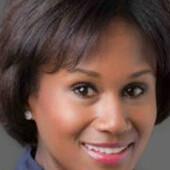David Wu, vice chairman of Deloitte China, discusses the role of ethics in financial services and consulting. In particular, he emphasizes the importance of transparency and professionalism and of making sure that women have equal opportunities in his industry--including his own efforts to overcome his upbringing regarding women. He also explains how his organization is dealing with technological change.
David Wu, vice chairman of Deloitte China, discusses the role of ethics in financial services and consulting. In particular, he emphasizes the importance of transparency and professionalism and of making sure that women have equal opportunities in his industry—including his own efforts to overcome his upbringing regarding women. He also explains how his organization is dealing with technological change.
Ethics in Business: In Their Own Words is an interview series produced by Carnegie Council in partnership with ACCA (Association of Chartered Certified Accountants) and CFA Institute. It features global business leaders exploring how businesses are preparing for an ethical future in the face of threats and challenges presented by globalization, technology, and human psychology.
For more on this and other Global Ethics Day-related projects, please go to https://www.globalethicsday.org.




